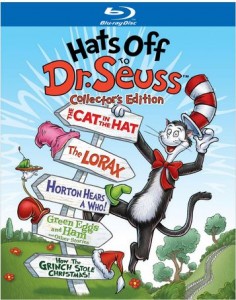Ultimately, literature is nothing but carpentry. With both you are working with reality, a material just as hard as wood.
– Gabriel Garcia Marquez
Your Inka Chicken: I’m not a fan.
I told you twice, Sam I Am.
We tried it once and I am done. My ham sandwich is number one.
Inka Chicken is not for me. I despise it; why can’t you see?
Get it through your head at last; Inka Chicken tastes like ass.
 These five lines of Seussian poetry were written by yours truly as the expression of a fantasy reply to someone who invited me to a restaurant I have a reputation of disliking. I can’t say for certain whether he was being a smart ass or was just extending a courtesy invitation. Based on the chuckle after extending it, though, I’m guessing it was the former.
These five lines of Seussian poetry were written by yours truly as the expression of a fantasy reply to someone who invited me to a restaurant I have a reputation of disliking. I can’t say for certain whether he was being a smart ass or was just extending a courtesy invitation. Based on the chuckle after extending it, though, I’m guessing it was the former.
Most of my writing is an embellished version of real life conversations and events from work, home, and outings. This poem was no different. In this case I was bemused by the persistence of my coworkers goading me into eating lunch at an establishment I had made clear held no appeal to me and I wanted to share my pain with my facebook friends. You’re welcome.
However, my third biggest critic and best friend decided it was a sub-par example of the lyrically entertaining children’s poetry with the deeper message Dr. Seuss was so famous for writing. I know this because he told me so a day later when we were having beer at our local dive bar.
According to him, the meaning was confusing, he thought the change from first person to second person didn’t make sense, and the drifting in and out of the possessive was distracting. When I asked for clarification about what confused him he pointed out the fact that, among other things, I went to the subject restaurant under protest but then bitched about it. As a courtesy I spent the next 15 minutes trying to clarify the timeline of events that led to my “failed” poetry attempt.
For your edification here’s a basic breakdown.
My first encounter with Inka Chicken was about a year ago. I walked in and read the menu. The left side detailed how many different ways you could purchase all or part of a rotisserie chicken. The right side listed a number of side dishes and desserts with names I couldn’t pronounce. I promptly left, deciding that Sonic Drive-in was a better option—because I know what tater tots are.
Then, a few months ago, the work lunch crowd suggested we try it. I agreed, but with very low expectations. I ordered something that involved rotisserie chicken and other Peruvian fare I couldn’t pronounce. When our food arrived, the visual appeal was almost interesting and so I mustered every ounce of optimism I could summon and dug in. About halfway through, I patted myself on the back for a sterling first instinct. It was, frankly, not worth the effort of raising my fork to my mouth.
Fast forward to earlier this week, and it was my choice for lunch. I choose Double Dave’s Pizza—but on the way out, one of the lunch-meisters attempted to derail my pizza-fest, insisting instead that we head over to Inka Chicken. I protested several times, asserting simply “I hate that place.” Not to be dissuaded, the troublemaker pitched Inka Chicken twice more, to which I replied both times “We tried that place and I hate it.”
24 hours later two of these rat bastards stuck their heads in my office and one of them said, “We’re going to Inka Chicken. Wanna join us?” And thus was conceived the imaginary retort that began this entry.
But for some reason, this clarification wasn’t enough for my friend. He insisted that it was a poor telling of the story and, as we all know, if it doesn’t tell a story it’s not art, and therefore should not grace the pages of that artistic repository known as facebook.
Other than the repetitive way I had to explain the timeline, though, I wasn’t bothered at all by my friend’s critique. The medium is facebook and the content is a poem that I essentially ripped off from a writer of children’s books. He doesn’t like it? Uhm, I don’t care.
But on my way home I kept hearing him talk about my drifting in and out of first and second person. And then I started arguing with him in my head.
“I didn’t change person willy-nilly. At times I was addressing a coworker and at others I was expressing a feeling or a preference.” By the next morning I was adamant in my own mind that his assessment was horribly flawed. And then I thought “My friend is wrong, and I have to tell everyone. I have to put it out there for everyone to see because, now, I can’t not put it out there.”
And since you’re still here, you must be just the tiniest bit curious about what all this obsessive-compulsive ruminating has wrought. Answer: a detailed analysis of my story telling poetry, beginning with verse one:
Your Inka Chicken: I’m not a fan.
In this verse I begin by addressing my coworker, reminding him that I don’t like Inka Chicken, a place he and the rest of the work lunch group dearly love. He apparently didn’t quite understand that “I don’t like Inka Chicken.” despite my protestations from the day before, and I felt compelled to make my feelings known. Again.
Further, my use of the possessive “your” is intentional, acknowledging that he has a fondness that I don’t share for that establishment. Lest there be any confusion, I was not suggesting he owned the restaurant nor that he prepared the food.
Now let’s examine the second verse:
I told you twice, Sam I am.
The purpose of this verse is two-fold. First, I wanted to underscore the sentiment in the first verse. It expresses the passion that my hatred of Inka Chicken inspires. Also, in the imaginary conversation I was having with my coworker, I felt the need to repeat the sentiment I expressed in the first verse so that he would understand that I’m not just kidding about my feelings for this establishment.
The second reason for this verse is that I desperately needed a blatant rip-off of Dr. Seuss to explicitly acknowledge that I was borrowing his style of poetry. Sam I Am is perhaps the most well-known Dr. Seuss character, so I not only used Seussian meter and rhyme, I also addressed my coworker as an annoying Seussian character. Like my coworker, Sam I Am is either very persistent or not very bright, because he keeps pestering the primary unnamed character to try something that he has repeatedly asserted he did not want to try.
OK. Verse three:
We tried it once and I am done. My ham sandwich is number one.
In this verse, I first remind my coworker that I have been to Inka Chicken with him and three others, that I tried the food with an open mind, and that it utterly lived down to my expectations. This is also an implicit reminder that the day before, one of these individuals tried to dissuade me from our planned trip to Double Dave’s and I asserted several times with significant verbal force
“No. I hate Inka Chicken.”
The remainder of the verse informs him that I have other lunch plans that involve a ham sandwich and that I am very fond of it. In fact in that moment my affection for my ham sandwich was so great that I proclaimed it to be the very best lunch item in existence. That’s why I wrote that “it’s number one”, because that’s what number one means. So if there was any doubt before the third verse about my hatred for Inka Chicken and my love for ham sandwiches, he should now have a clear and unmistakable understanding of that fact.
Verse four:
Inka Chicken is not for me. I despise it; why can’t you see?
This verse expresses my frustration with this situation because it’s no longer about Inka Chicken. As a Libertarian, I think that if you want to go to Inka Chicken and order half a roasted, dry chicken carcass with no flavor, you should be able to do that. But why do you keep pestering me to go? I simply want to be left alone with my beautiful sandwich on whole wheat bread with honey-cured ham, succulent butter lettuce, and sweet tomato. Eat your bone-in chicken and leave me alone.
Verse five:
Get it through your head at last; Inka Chicken tastes like ass.
This verse is purposely over the top because, like music, poetry should sometimes end with a crescendo. In the final moment of this soliloquy, at the zenith of my fervor, I proclaim once and for all time to come that I have no intention of ever setting foot in Inka Chicken again.
Now one person speculated about my knowledge of assy flavors because she thought it was a funny observation—and it was. However, I want to make it clear in this entry that the term “ass” is a metaphor, well a simile, actually. I think this particular verse also makes the poem a cautionary tale. I wanted to send a clear warning that if you have any taste at all you won’t like Inka Chicken any more than you like ass.
Further, I wanted to end my poem with a final statement that does more than merely suggest I don’t like Inka Chicken. I wanted to issue an intense, impassioned plea to my adversaries to cease and desist all invitations to this infernal shrine to chicken carcasses.
Perhaps my muse failed me by convincing me that I was capable of writing five lines of meaningful and entertaining Seussian poetry.
The refund line forms at the rear.
Guy-o


